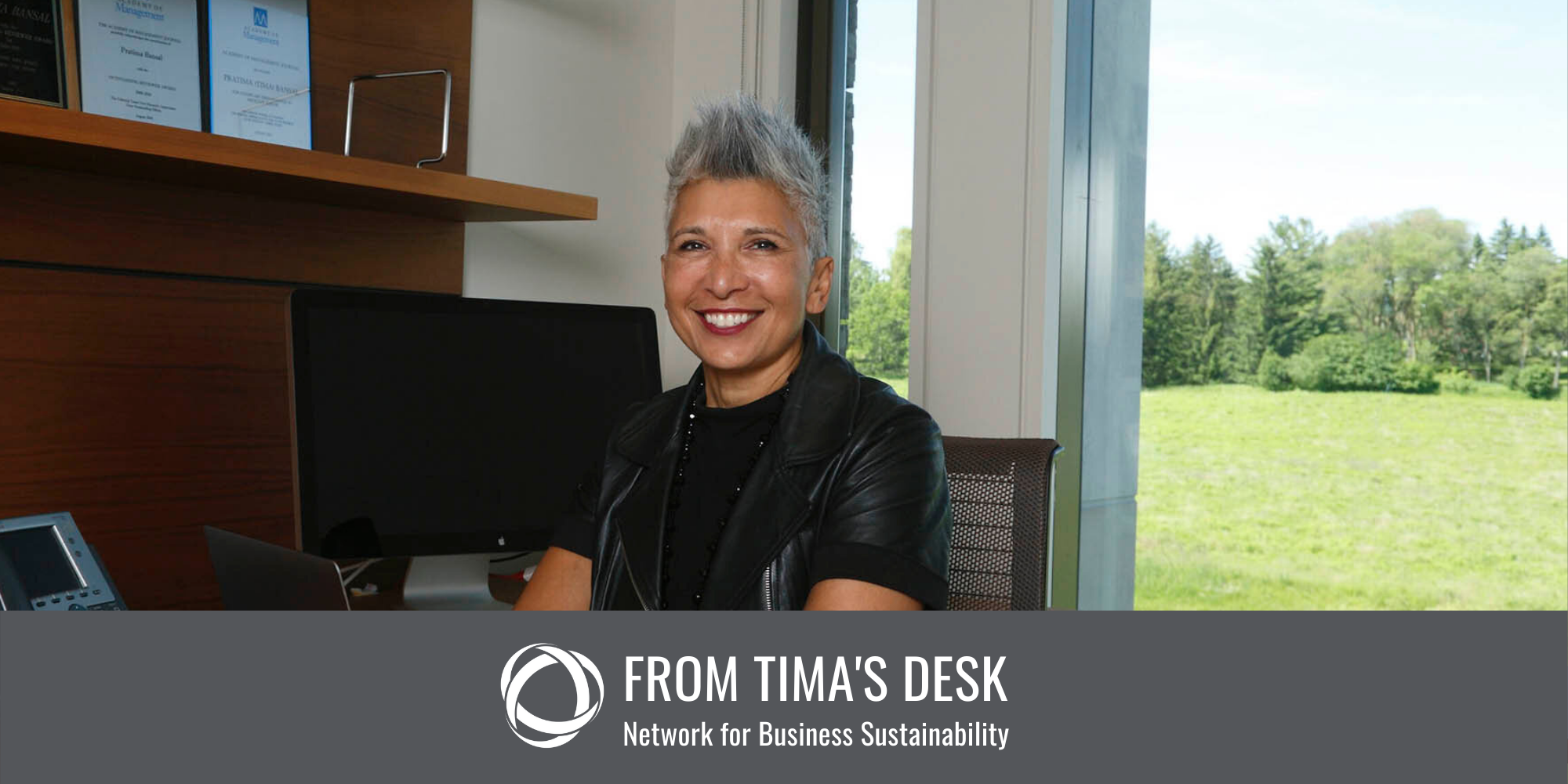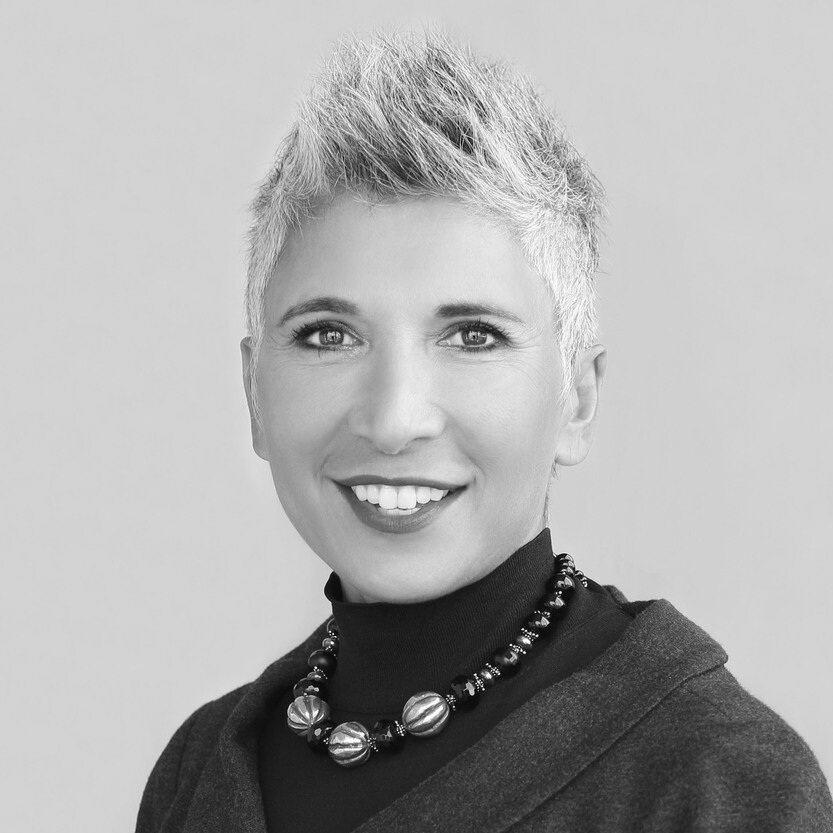How business schools misinterpreted economics.
Dr. Tima Bansal is Founder of the Network for Business Sustainability.
I have often puzzled about a disturbing research finding: students enter MBA programs more community oriented, and exit programs more self oriented. Do MBA programs make students greedy?
I have taught sustainability to MBAs for over 15 years and this research finding certainly resonates with my experience. In recent years, I have taught my first class in the first few weeks of the MBA program. I am swarmed after class by students wanting to know more about sustainability. I teach my last class about four months later, and there is a visible shift in the students’ focus to business profits. In fact, some students even argue that business doesn’t have a role in society. I wrote about this experience in a past article for NBS.
Now this shift in thinking of my MBAs may just reflect their comfort with the program. After four months in the program, students are less worried about managing impressions and willing to speak their ‘true mind.’ Even if this was the case, it would support the research. Students who care less about society may feel more emboldened over time, and those who care more about society feel less empowered.
If you have an MBA, you might be skeptical of these findings. But, there is plenty of supporting evidence.
In this newsletter, we describe one such study by Miller and Xu. The researchers find that CEOs with MBAs are likely to lead firms with a short-term focus, which is harmful to the organization and society. Miller and Xu analyzed the educational background of 5004 CEOs from 2003 to 2013 and found that MBA-trained CEOs are more likely to manage earnings to make themselves appear successful.
So, do business programs make students greedy?
Yes, but not intentionally. I can say confidently that my colleagues and I do not set out to teach students to be greedy. However, I believe there is a built-in flaw in the curriculum. The heart of the issue lies in the way that business schools (and business practice more generally) have interpreted their parent discipline — economics.
Milton Friedman says in a 1970 New York Times Magazine article that business should “make as much money as possible ….” Friedman makes a logically consistent argument in this article, based on clearly laid out assumptions. Specifically, Friedman argues that if businesses look after their self interests and government sets the rules that protect society, the economy will efficiently produce output that contributes to society’s well-being.
Let me emphasize a key point: economists seek to enhance societal well-being, not business profits.
The concern among economists for societal well-being is evident in many of the recent Nobel Prizes in economics. In 2018, William Nordhaus won the Nobel Prize for “integrating climate change into long-run macroeconomic analysis”; in 2018, Angus Deaton won for “his analysis of consumption, poverty, and welfare”; in 2014, Jean Tirole won for “his analysis of market power and regulation,” arguing that society suffers if companies are left unregulated; and, in 2009, Elinor Ostrom won for “her analysis of economic governance, especially the commons.”
But, business schools often focus on Friedman’s claims of self interest and profits, forgetting that government is needed to protect society.
As business becomes more powerful, they increasingly control government. Based on data from SEC filings, sixty major corporations paid no corporate taxes. I expect one would not have to dig far to uncover the political donations made by these corporations. Further, politicians with business backgrounds tend to sympathize with business. So, who is protecting society’s interests?
There is another issue in the way that economics logic is translated to business logic. Gordon Gecko’s famous statement from the 1987 movie Wall Street that “greed is good” can still be heard in business school hallways — a statement derived from Friedman’s argument. But Gecko made an illogical leap, which most business students miss. Friedman did not argue that every single manager be greedy. Instead, he argued that managers, in general, need to act as if they are greedy (more accurately, self-interested). Friedman was talking about economic systems, not individuals. Applying the properties of a system to an individual is the same as saying that if the average height for men is six feet, then every single man must be six feet tall. The properties of an economic system cannot be applied to the parts that comprise the system.
Yet, business schools teach the principles for managing the ‘parts’ (i.e. managers and businesses) of the economic ‘system.’ So, business school professors do not teach greed, but the curriculum inadvertently reflects Friedman’s emphasis to “make as much money as possible.” In strategy courses, we teach students to be competitive and grow their business at all costs. In marketing, we teach students to sell stuff, whether or not it is good for society or the environment. In finance, we teach that everything can be valued, even though many would argue that human life should not be. There are many such examples. The problem does not lie with professors or with students; the problem lies with the assumptions of the curriculum.
So, what can businesses and business schools do about it?
The obvious answer is to change the curriculum. But, this is difficult to do as the principles of the curriculum are so deeply embedded in business. Business schools both reflect and shape business practice. To change curriculum requires changing practice.
An easier approach is recognize the biases of business and compensate by introducing diversity in thought. The more that businesses integrate different ways of thinking into their decision making, the more the links between business and society come into focus. If government is not setting the rules that protect societal well-being, then businesses can bring in people with different ways of thinking. Engineers are particularly adept at solving technical problems; ecologists can see systems; and anthropologists focus on culture and society. In other words, business schools can advocate for integration, not isolation; for heterogeneity, not homogeneity. In doing so, we can achieve the ambition of economists — to advance societal well-being — by building our own logic and not distorting theirs.
I predict that if Miller and Xu had studied corporations governed by diverse executive teams, they would have found very different outcomes than corporations governed strictly by MBAs.
Continuing the Conversation
As always, I welcome your reactions. Please feel free to message me (@TimaBansal, tbansal@ivey.ca) or the NBS community (@NBSnet) privately or publicly.
More From Tima’s Desk
Dr. Tima Bansal, NBS’s Founder, regularly shares her observations about business sustainability. Click the button below to see the full series.




Add a Comment
This site uses User Verification plugin to reduce spam. See how your comment data is processed.This site uses User Verification plugin to reduce spam. See how your comment data is processed.